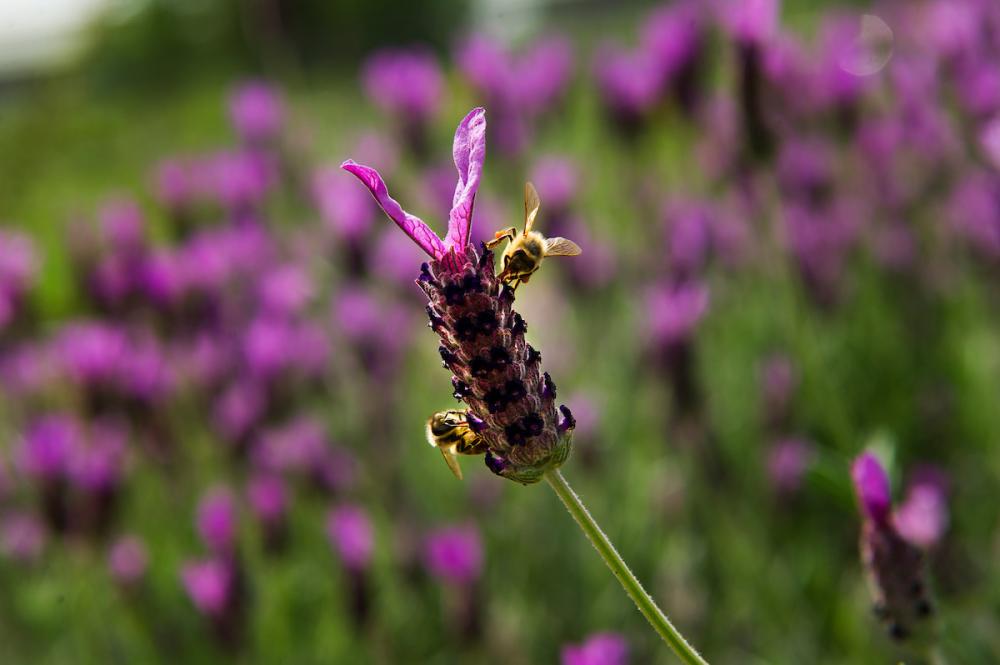UC Davis Bee Haven

|
Tuesday, September 20th 12:00 p.m-1:00 p.m. Thank you for your interest, registration is now closed. |
Tour will include a sample of local honey and cover the following:
- History and purpose of the garden: concept to reality, how it’s used, supported, and maintained.
- Honey bees and other bee pollinators: biology, economic importance, why they’re in trouble and what’s being done to help.
- Plants: what is pollination, how the garden’s plants are selected and grown.
- Bees and food production: key crops and how they are pollinated, UC Davis research, ideas for home food gardens.
- What you can do: applying principles of bee biology and ecology in your own garden, how to build and maintain a bee garden, how to observe and study bees, supporting bee outreach and research.
To ensure an enjoyable visit, please note the following:
- Please arrive on time and park at the garden, not the Laidlaw Honey Bee Research Facility. There is no charge for parking.
- The garden is on a dead-end road. There is no bus/large van turnaround at the garden. Large vehicles may pull in and back out or they may turn around at the Hopkins Road/Bee Biology Road intersection and back into the garden.
- All participants must be present at the scheduled tour start time; we cannot accommodate late or individual arrivals. Parties of more than 15 people may be split into smaller groups due to space limitations.
We do not have drinking water, restrooms, a picnic area, or trash service at the garden. Directions to the nearest campus bathrooms are here. There are live bees in the garden. In rare cases bee stings can cause a serious reaction in some people. Shirts and shoes are required. Visitors should wear closed-toed, closed-heel shoes and avoid scented personal care products. There is no medical treatment at the garden. If you are allergic to bee stings, please bring appropriate equipment and medication such as an EpiPen and antihistamines. Click here for information about preventing and treating bee stings.

